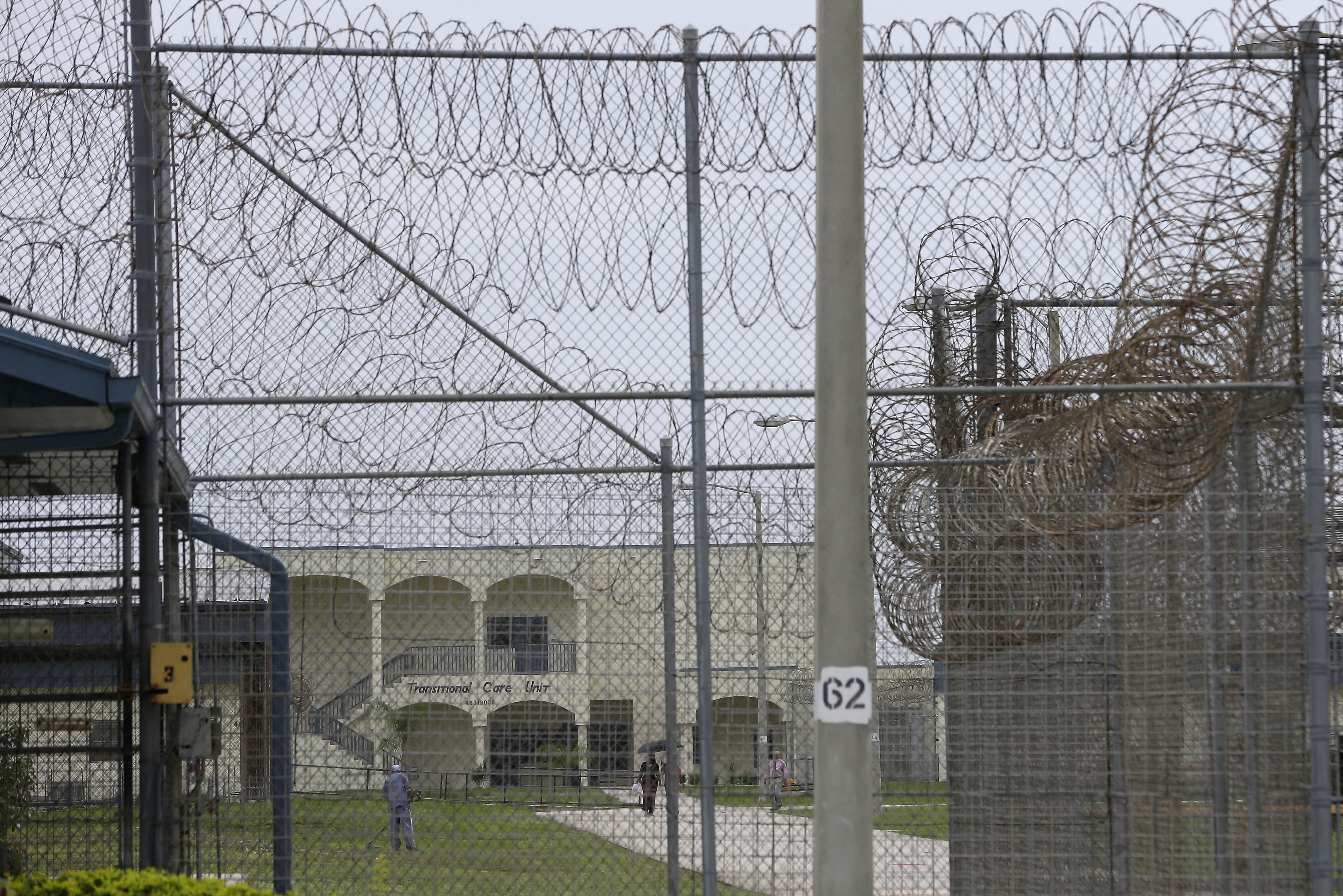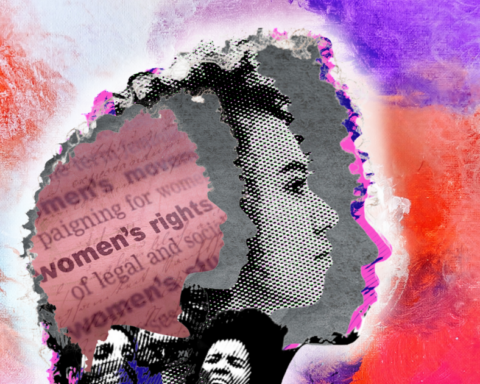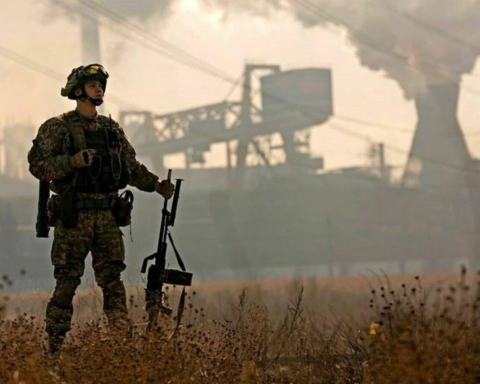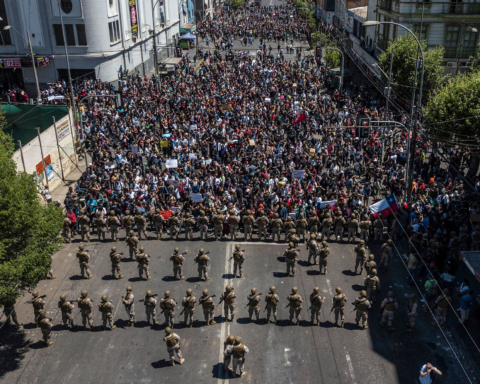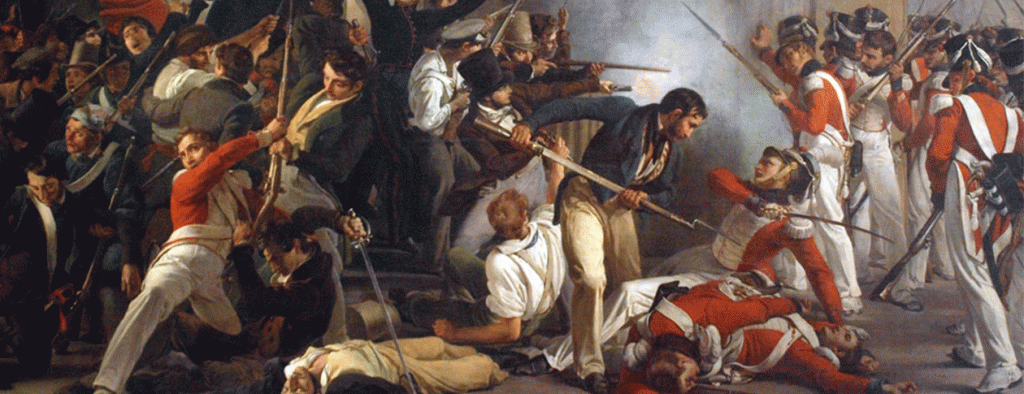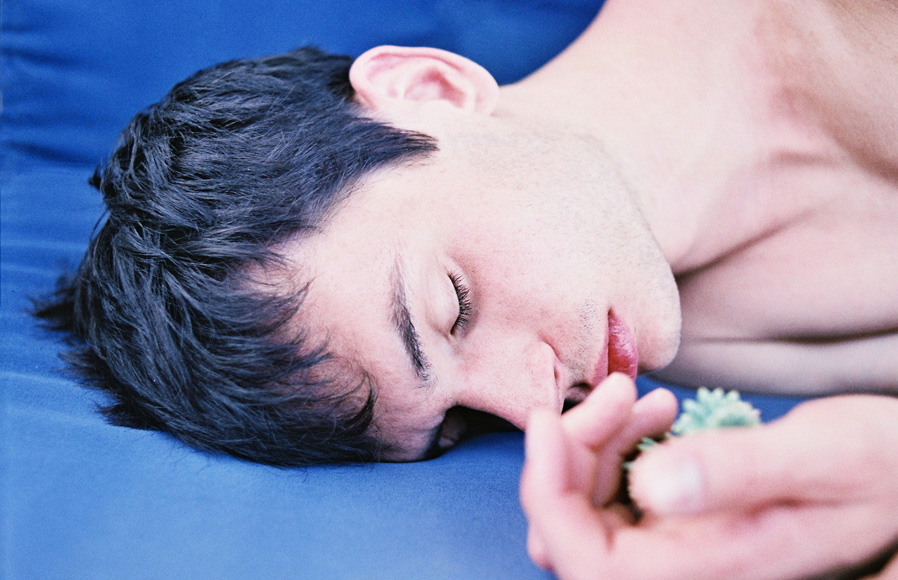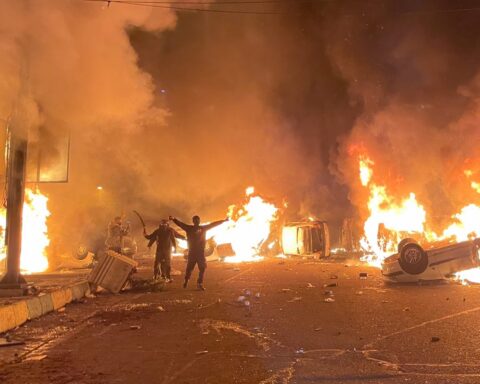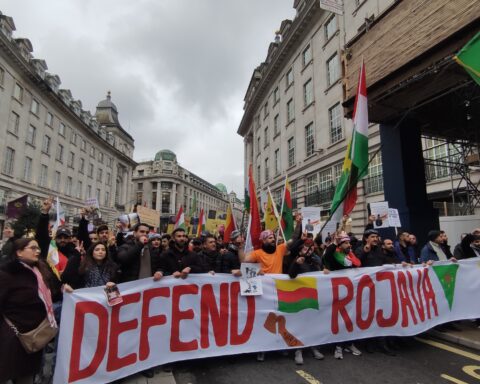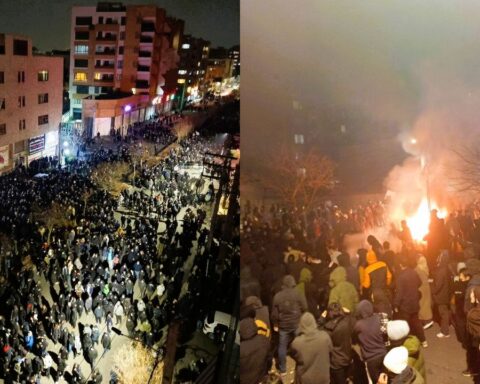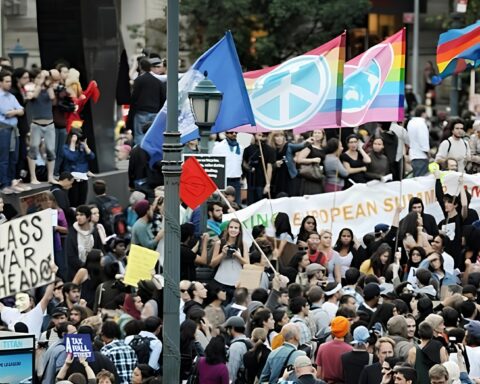FLORIDA PRISONERS ARE calling for a general strike to start this week — marking the third mass action over the course of a year in protest of inhumane conditions in the state’s detention facilities. Detainees in at least eight prisons have declared their intention to stop all work on Monday — Martin Luther King Jr. Day — to demand an end to unpaid labor and price gouging in prison commissaries, as well as the restoration of parole, among other requests.
Coordinated, nonviolent prison protests as well as spontaneous uprisings amid deteriorating conditions have escalated in recent years both nationwide and in Florida, which has the third largest prison system in the country. Prisoners in the state were among the most active during a nationwide strike in September 2016, which was quickly dubbed the “largest prison strike in U.S. history.” At least 10 Florida prisons participated in that action, which was planned to coincide with the 45th anniversary of the Attica prison uprising but started a day early when tensions flared at Holmes Correctional Institution in the Florida Panhandle. Then, in August, in response to prison activists’ calls for another show of dissent, Department of Corrections officials placed the entire state system — 143 facilities and 97,000 people — on lockdown, an unprecedented move.
Incarcerated organizers of this week’s strike have chosen to remain anonymous to prevent retaliation, but they shared a statement outlining their demands with outside supporters. In an audio message from prison shared with The Intercept, one of the organizers described the action as a “nonviolent protest to get what we deserve from our government.”
“They use word play and deceive the public about what really goes on inside the system, and we want to expose those things,” he said.
Prison officials regularly retaliate against organizers by restricting their visitation rights and contact with other inmates, and sometimes even moving them to different facilities, which makes it harder for reports of protests to reach the public. But despite the challenges, “prisoners are pretty well organized and coordinated inside the prisons and throughout the prison system,” said Panagioti Tsolkas, an organizer with the prisoners’ rights and environmentalist group Campaign to Fight Toxic Prisons. Tsolkas, who communicates regularly with activists inside, said that some of the upcoming strike’s organizers have already been placed in solitary confinement in retaliation for their efforts.
In response to questions about the planned strike, a spokesperson for the Florida Department of Corrections wrote in a statement to The Intercept that “the department will continue to ensure the safe operation of our correctional institutions.”
“Slave Labor” and Price Gouging
Florida prisoners work both inside the prisons — doing laundry, cooking, maintaining the facilities, and growing food — and on outside “community work squads.” According to the corrections department, in 2017 the latter group alone performed 3.15 million hours of work valued at more than $38 million statewide, including cleanup work after Hurricane Irma.
“Our goal is to make the governor realize that it will cost the state of Florida millions of dollars daily to contract outside companies to come and cook, clean, and handle the maintenance,” the prisoners wrote in their statement. “This will cause a total BREAK DOWN.”
Prisoners are demanding compensation for their work as opposed to “the current slave arrangement,” they wrote, in which they are paid in time deducted from their sentences. “A lot of times people will work in order to get time deducted, and then the prison guards and officials will find ways to punish someone for what the prisoners are saying are made up reasons that then extend the person’s time,” Jacqueline Aziz, an attorney with the Florida chapter of the American Civil Liberties Union, told The Intercept.
“We want to be paid for the work we do, so that somebody doesn’t end up spending 10, 15, 20 years not being paid, and sent home with a bus ticket and a $50 check,” the prisoner speaking in the recording said. “We want to create an environment where someone can do their time, be rehabilitated, and enter into society with some type of hope.”
“That would be helpful for society instead of creating a revolving door where you lock people up and just set them up for failure so that they keep coming back.”
Prisoners are also calling for fairer pricing of goods they can purchase in prison — claiming, for example, that a case of soup that costs $4 on the outside is sold for $17 by prison commissaries (the DOC disputed that claim and provided the following list of canteen prices).
“This is highway robbery without a gun,” the prisoners wrote. “It’s not just us that they’re taking from. It’s our families who struggle to make ends meet and send us money — they are the real victims that the state of Florida is taking advantage of.”
Strike organizers are also calling on Florida to restore parole — which the state eliminated for non-capital felonies in 1984. “When someone is sentenced to life in prison, it means life in prison in Florida,” said Aziz. “There is no chance that good behavior in prison will get someone out earlier.”
The lack of parole has compounded the system’s colossal overcrowding, which in turn has contributed to some of the harshest and most violent prison conditions in the country. “There are so many unexplained deaths,” Lisa Graybill, deputy legal director for criminal justice reform at the Southern Poverty Law Center, told The Intercept. “They’re just appalling.”
Unexplained Deaths in Custody
Deaths in Florida state prisons — including homicides and a spate of suicides — have skyrocketed in recent years, soaring from 191 in 2000 to 356 in 2016.
Among those killed in custody was Darren Rainey, a mentally ill prisoner who was scalded to death at Dade Correctional Institution in 2012 when guards locked him in a hot shower for two hours. The water reached temperatures as high as 180 degrees, according to witnesses, including a nurse on duty that night who said that the heat controls were in a neighboring room controlled by guards.
Following Rainey’s death, a devastating investigation by the Miami Herald detailed more unexplained and brutal deaths, as well as system-wide neglect and abuse and efforts to cover up prison officials’ wrongdoing. Randall Jordan-Aparo, a disabled inmate at Franklin Correctional Institution, was killed in 2010 when guards beat him and gassed him with a chemical agent after he begged for medical help for days (prison guards later took to Facebook to mock his death). Another prisoner allegedly hanged herself while her hands were tied.
The corrections department has also been sued over its treatment of disabled prisoners and its failure to treat prisoners with Hepatitis C, and rights groups have called on the Department of Justice — twice — to open a federal civil rights investigation into the state’s prisons. “These problems are chronic,” Graybill said. “They haven’t been addressed and they’re not going away.”
Like most other states, Florida went on an “incarceration binge” in the 1990s, Graybill said. But unlike most other states — some 36 of which have undertaken some kind of criminal justice reform — the state has consistently refused to reconsider its policies.
“The solution for Florida is clear,” she said. “It needs to improve the conditions of confinement in its facilities, and one way it can afford to do that is by ensuring that it is only incarcerating the people who truly need to be incarcerated.”
“The question becomes, Why has the legislature been so unwilling or unable to do that?”
“This Is Florida … We’ll Beat Your Ass!”
In addition to denouncing brutal conditions of confinement, the prisoners are demanding broader criminal justice reform in Florida — including restored voting rights and a moratorium on executions.
Florida is one of four states in the country — with Kentucky, Iowa, and Virginia — that imposes lifetime disenfranchisement for people convicted of felonies. That means 1.5 million state residents can’t vote because of their criminal history. “People who have already paid their debt to society are essentially prevented from being active citizens,” said Aziz, the ACLU lawyer.
A proposed constitutional amendment could change that — if it can garner enough support to get on the ballot — but until that passes, the only potential path to the vote is for each disenfranchised individual to personally appeal to the governor, Rick Scott. Scott grants only 8 percent of those appeals, with little transparency on the decision-making process and a backlog of 10,000 applications awaiting review, the New York Times recently reported. The process leaves restoration of the right to vote dependent on the governor’s personal convictions. In a hearing on the voting rights of a man who had been convicted of manslaughter in a drunken driving incident, for instance, Scott said he would need to think about it — then noted, with his mic accidentally still on, “That’s how my uncle died.”
Scott also wields disproportionate power when it comes to the state’s death penalty. After newly elected prosecutor Aramis Ayala — Florida’s first black state attorney – said she would not seek the death penalty in her district, which includes Orlando, Scott moved 29 potential capital cases to a different jurisdiction. Ayala appealed, but the state’s Supreme Court ruled in the governor’s favor, forcing her to walk back her ban. Last year, Florida moved to tighten its death penalty laws by requiring a unanimous jury verdict after the U.S. Supreme Court ruled that the previous sentencing protocol was unconstitutional. The move made dozens of people eligible for re-sentencing, but the state limited retroactive application to those sentenced after 2002 — leaving approximately 200 on death row with sentences ineligible for review.
Finally, prisoners planning the strike are joining the local community’s protest against a phosphate mine set to surround the Reception and Medical Center near Lake Butler, where new arrivals and inmates with medical conditions are housed. Residents and prisoners fear the health consequences of water contamination and exposure to potential carcinogens linked to phosphate mining.
Kevin “Rashid” Johnson arrived at the Reception and Medical Center last spring.
Johnson, a well-known prison activist, jailhouse lawyer, and prolific writer and critic of prison abuse, had already been moved from Virginia to Texas under an interstate agreement that allows for the transfer of prisoners — ostensibly for public safety reasons, but often as a punitive measure.
That Johnson would be transferred to Florida “is a piece of evidence of how the Florida prison system is viewed even by the prison industry itself,” said Tsolkas, who has been communicating with him ahead of the upcoming strike. “Appalachia wasn’t bad enough. Texas wasn’t bad enough. Well, you’re going to the swamps.”
At the RMC, Johnson wrote in July, a guard told him that he was “not in Virginia, or wherever else” he might have been previously. “You will answer us only as ‘no sir’ and ‘yessir,’ ‘no ma’am’ and ‘yes ma’am.’ You forget this and we’ll kick your fucking teeth out,” the guard said, according to Johnson. “This is Florida, and we’ll beat your ass! We’ll kill you!”
That didn’t stop Johnson from continuing to expose prison abuse in Florida, or from joining the state prisoners’ organizing efforts, including ahead of Monday’s strike.
“What the prisoners are asking for is not only completely reasonable, but should be the bare minimum of how we treat an individual that the state is in charge of caring for,” said Aziz. “I would hope that whatever the DOC’s response is, it is an ethical and responsible way of addressing these real concerns.”
___________________________________
Alice Speri
Alice Speri is a multimedia journalist with an interest in justice, civil rights, and the struggle for equality. She has reported on state violence and institutional failure in the U.S. and abroad, from Ferguson, Missouri, to Haiti and Palestine. Her work has appeared in VICE News, Al Jazeera America, the New York Times, and several other publications. She is originally from Italy and lives in the Bronx.
